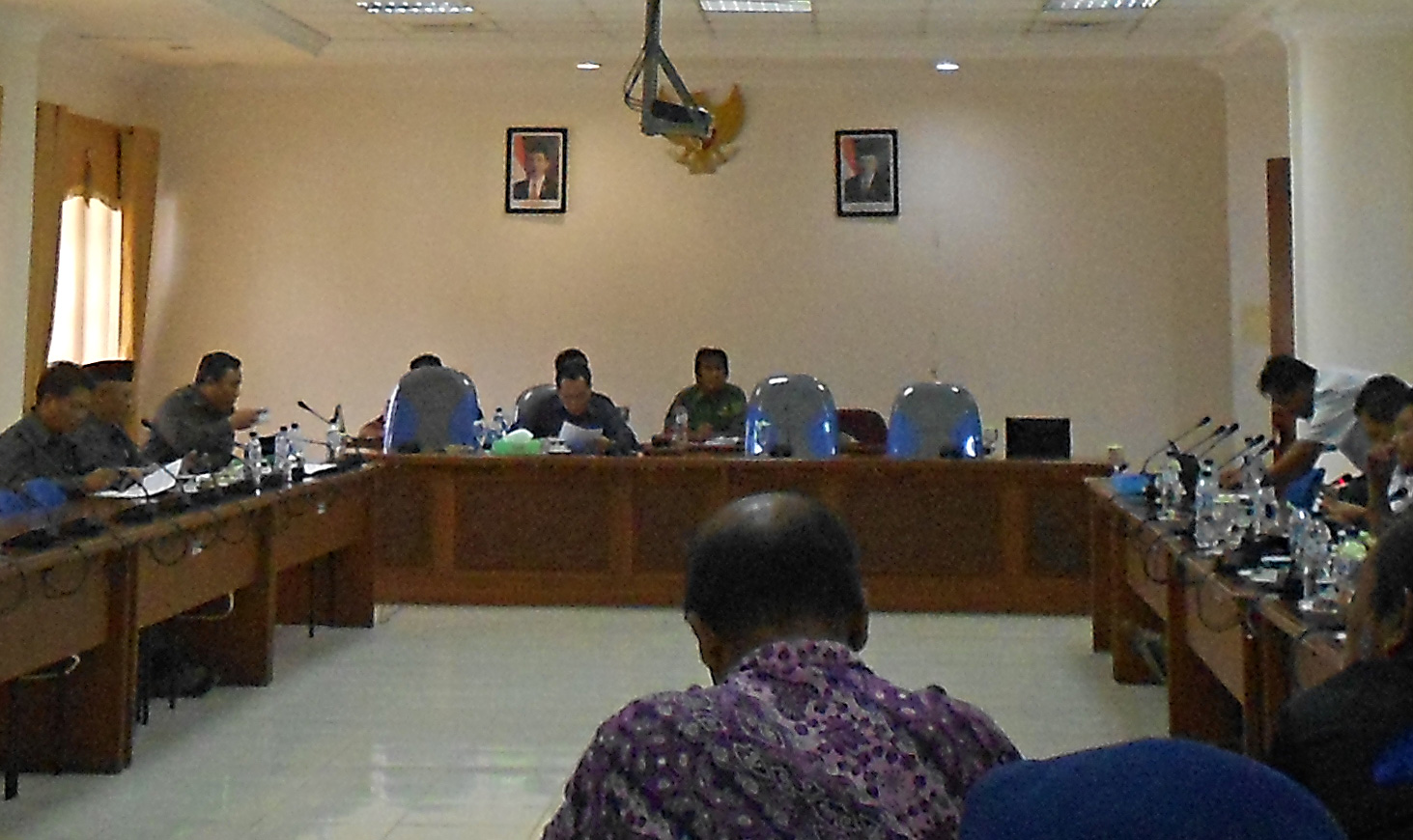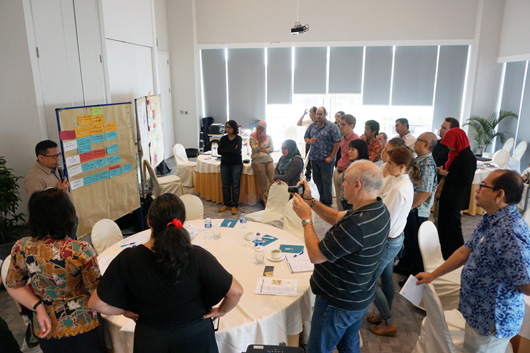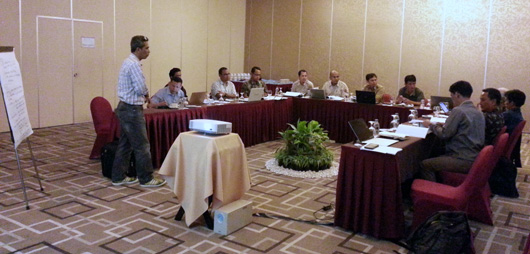FORCLIME
Forests and Climate Change ProgrammeTechnical Cooperation (TC Module)

Select your language

The Berau REDD Working Group together with the Regional Representatives Council (DPRD) of Berau District initiated a meeting to discuss the Berau Forest Carbon Programme. The meeting that was held on 15 June was conducted as an effort to promote sustainable management of natural resources in Berau. This joint meeting was attended by 29 representatives from non-governmental organizations and cooperation programmes which implement activities in Berau. The purpose of the meeting was to develop a common understanding and commitment amongst relevant stakeholders with regard to natural resources management in Berau.
During the meeting teams from FORCLIME technical cooperation (TC) and financial cooperation (FC) presented their activities in Berau. The presentation aimed at providing more information and developing a better understanding among local legislators related to the Forest Carbon Programme in Berau. It is hoped that these inputs will have positive implications on the preparation of district regulations for the sustainable management of natural resources in Berau.
For further information, please contact
Alfan Subekti, Strategic Area Manager for FMU and Climate Change

The Indonesian government has initiated various policies and measures to prevent and combat corruption, and increase integrity and transparency within the government apparatus and sectors. An MoU and action plan 2015-2016 between the KPK and the line ministries and subnational governments defines a series of concrete measures to fight corruption and achieve greater transparency in the forest sector by 1) accelerating forest area gazettement & uniform land use planning, 2) revising licensing, 3) expanding of community forest management schemes and 4) establishing an anti-corruption control system.
Successful anticorruption measures require detailed know-how among GIZ staff on processes, actors and the institutional knowledge on how corruption works and how corrupt actors think. During a two day training workshop on 16-17 June 2015, 25 participants from the GIZ programmes Forests and Climate Change (FORCLIME), Biodiversity and Climate Change (BIOCLIME), Green Economy and Locally Appropriate Mitigation Actions (GE-LAMA-I) and the Preventing and Combating Corruption (PCC) have been trained in the Anticorruption WORKS advisory tool with support from two trainers from Denkmodell Consultants. Resource persons from the Indonesian Corruption Eradication Commission (KPK), the National Forest Council (DKN) and the PCC programme explained the legal and institutional basis for corruption prevention, assessed the risks for corruption in the Indonesian forest sector and explained the cooperation between KPK and forest sector stakeholders (ministries, local governments, civil society) to prevent corruption.
The training raised awareness and enhanced the knowledge of GIZ experts on anticorruption and integrity. Participants learned how to identify major corruption risks in the forestry sector and developed a strategy to tackle them. The training is also the basis for GIZ staff to develop AC-related advisory offers for their national partners in the areas of forest sector reform, land use planning, CBFM and anticorruption control systems.
For further information please contact Mathias Bertram (Strategic Area Manager Forest Policy): mathias.bertram@giz.de

One of the requirements to operationalize Forest Management Units (FMUs) in Indonesia is the approval of their Long Term Management Plan (RPJP). The Production FMU (KPHP) in Malinau has prepared its draft RPJP, which was facilitated by the Forest Area Consolidation Center (BPKH) of Samarinda. In order to accelerate the process of updating the current RPJP draft and establishing the final management plan, a workshop was conducted on 9 June 2015. The objectives of the event were to review the current draft and finalise it based on the inputs given during discussions. Later, the final RPJP document will be submited to the Ministry of Environment and Forestry for approval. This workshop was attended by representatives from the Malinau District Forestry Office, the Watershed Management Centre (BPDAS), and other central government technical units such as BPKH, and the Production Forest Utilization Monitoring Centre (BP2HP).
During his speech, the Head of KPHP Malinau, Fransdjuli, stated that "the RPJP is one of the conditions for FMU operation, therefore, reviewing the current RPJP is an important step to accelerate the finalization of the document and help KPHP Malinau to catch up after a long vacuum caused by a lack of clear administrational structures". The Head of KPHP Malinau was appointed recently in April 2015, more than one year after the establishment of the District Technical Implementing Unit (UPTD), the managing unit of KPHP Malinau. "We expect the support of all parties in order to finalize the RPJP Malinau, so that it is ready to be submitted and obtain approval", added Fransdjuli.
For more information on FORCLIME activities related to the FMU development, please contact:
Alfan Subekti, Strategic Area Manager for FMU and Climate Change
Gatot Moeryanto, Senior Adviser for FMU development
 |
Supported By: |
  |